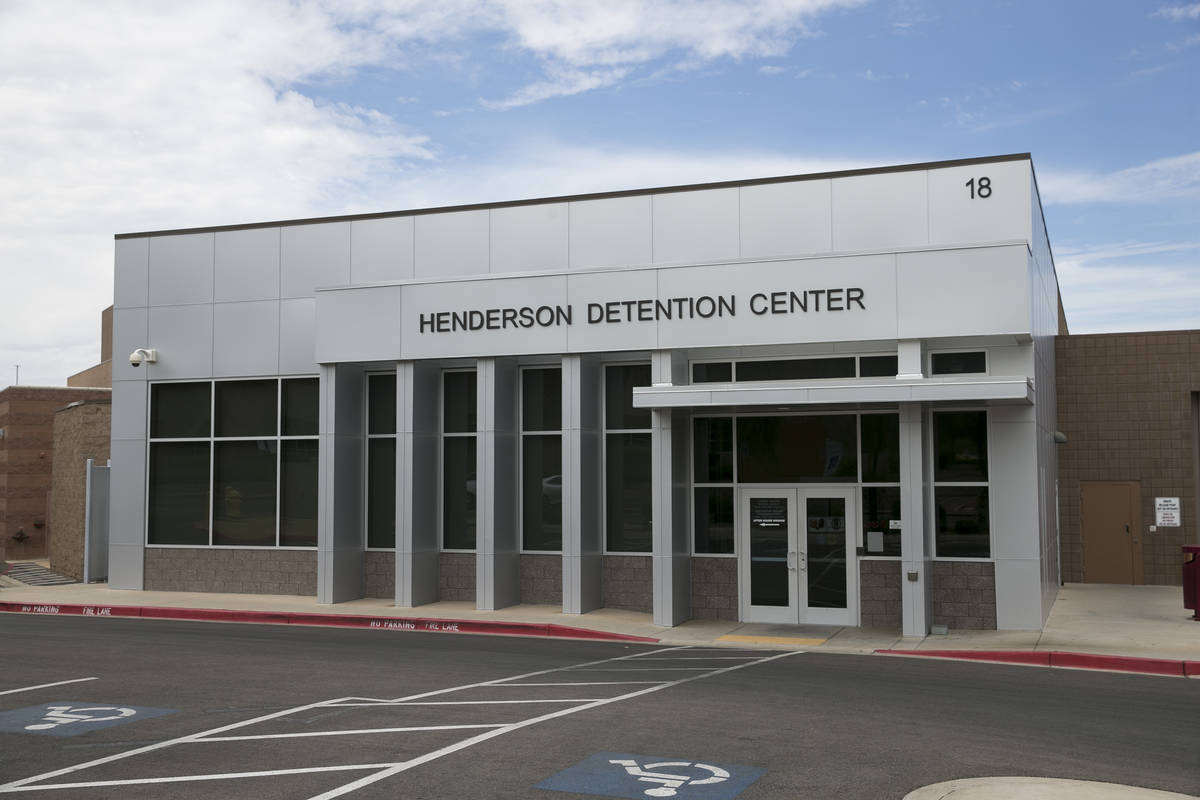Some urge ICE detainment moratorium in Nevada amid virus concerns
The father of three left his house Sunday afternoon in search of food and supplies — a scarcity across the Las Vegas Valley in the face of the COVID-19 pandemic.
But the 52-year-old man never made it to the grocery store.
Just down the street from his home, he was pulled over and detained by two U.S. Immigration and Customs Enforcement officers.
Across town, about a 30-minute drive away, Jessica Chavez’s phone rang. It was her 17-year-old sister.
“Are you sure? Are you really sure?” Chavez, in shock, asked her sister as she rushed out of her house and into her car. “Tell them not to take him until I get there.”
‘Exceptionally vulnerable’
Amid the coronavirus outbreak, immigration law experts have called for a temporary moratorium on ICE arrests.
And as drastic statewide measures have been announced to curb the spread of the respiratory illness, local advocates have called on ICE to release individuals who are at a higher risk of severe illness, including those 65 and older or those suffering from underlying medical conditions, to house arrest.
“The question is not if we can prevent COVID-19 from entering ICE detention facilities in Nevada, it is how we can minimize its impact on individuals when it happens,” said attorney Paloma Guerrero of the UNLV Immigration Clinic. “As such, the release of individuals, a choice ICE has the power to make, is necessary to limit exposure to as few people as possible.”
In a letter sent this week to Robert Culley, director of enforcement and removal operations for the Salt Lake City field office, 21 community members and organizations — including the ACLU of Nevada, Progressive Leadership Alliance of Nevada and former Clark County Commissioner Chris Giunchigliani — demanded that ICE disclose the measures it is taking to safeguard the health of those detained at the Henderson Detention Center, Nevada Southern Detention Center and the Washoe and Nye county jails.
“People in detention are exceptionally vulnerable to outbreaks of infectious disease,” the letter reads. “This fact is compounded by often crowded and unsanitary conditions, poor ventilation, lack of adequate access to hygienic materials such as soap and water or hand sanitizers, poor nutrition, and failure to adhere to recognized standards for prevention, screening, and containment.”
Preventive measures
Culley did not respond to a request for comment, but the agency said in a statement that “the health, welfare and safety of U.S. Immigration and Customs Enforcement (ICE) detainees is one of the agency’s highest priorities.”
As of Monday, there had been no confirmed COVID-19 cases in ICE detention facilities. It wasn’t immediately clear how ICE would handle a positive case, though the agency said it would comply with any court-ordered releases.
To prevent a coronavirus exposure in any of its facilities, according to ICE, detainees being processed into a facility will be screened for symptoms, which are flu-like, as well as risk of exposure, including recent travel prior to arrest.
Those with a fever or respiratory symptoms will be isolated and screened by medical staff, while detainees who may have been exposed to the illness will be housed separately from the general population.
Individuals with moderate to severe symptoms will be taken to an “appropriate” hospital, according to ICE.
Visitation to all ICE facilities also has been temporarily suspended.
‘The pain is there’
By the time Chavez, 29, got to her father’s house on Sunday afternoon, he was gone.
“We’ve always been aware that my dad doesn’t have legal status, and that this was a possibility, but we never really thought it would happen to him,” Chavez said. “He stays out of trouble. He’s kind and so hardworking.”
Chavez declined to publicly identify her 52-year-old father for fear of hurting his case or hindering his chance to be released from the Henderson Detention Center.
According to ICE, agents are prioritizing arrests of “individuals who threaten our national security and public safety” during the outbreak.
But Chavez’s father, who has been in the United States for two decades, does not have a criminal history or any prior arrests, according to immigration lawyer Sarah Perez, who is representing the Chavez family.
The man’s fate remains in limbo, but Perez said she is working around the clock to get him released from custody.
“Our city is effectively shut down, and we are still hearing about families separated by ICE,” Perez told the Las Vegas Review-Journal. “The continued detention of undocumented people is a threat to the health of those already detained and a threat to the well-being of the families left without a breadwinner and a loved one.”
For now, Chavez is taking care of her sister.
“I feel like I’m doing everything right now,” she said. “The pain is there, and there’s nothing that can fix it.”
Contact Rio Lacanlale at rlacanlale@reviewjournal.com or 702-383-0381. Follow @riolacanlale on Twitter.


















